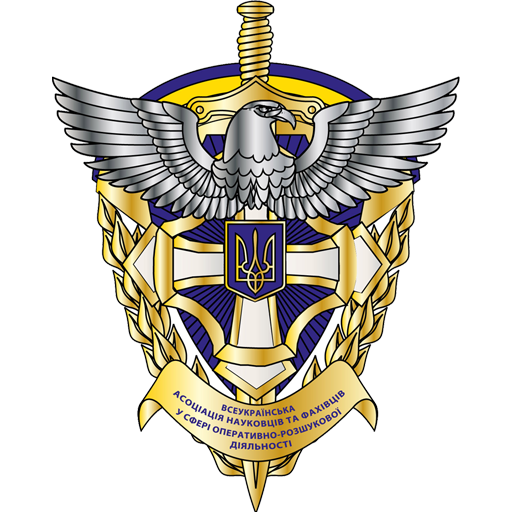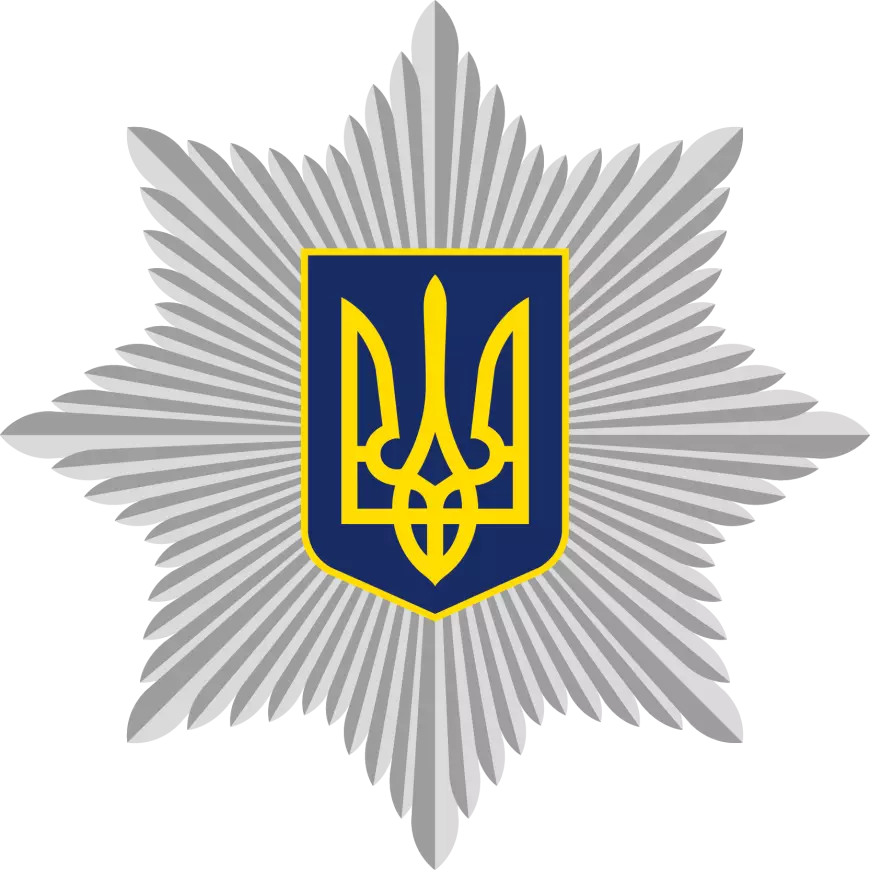All news
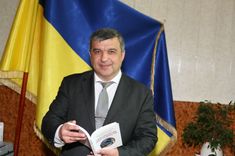
DIGITAL SECURITY AS A HUMANITARIAN TASK: THE UKRAINIAN VECTOR OF IOCTA IMPLEMENTATION
In today’s world, digital security increasingly emerges not only as a technical or law enforcement function, but as a complex humanitarian task that directly affects people’s lives, institutional stability, and societal trust. With the expansion of digital infrastructure—especially under conditions of war and hybrid threats—the need for a systemic understanding of online security has moved beyond narrow technical solutions. It has become an interdisciplinary challenge, where technology, law, ethics, social responsibility, and public policy converge.
Ukraine, facing full-scale aggression, has become a testing ground for new forms of digital vulnerability: from mass disinformation campaigns and targeted cyberattacks on critical infrastructure to the spread of online violence, phishing schemes, and manipulative content aimed at citizens, military personnel, journalists, and activists. In such circumstances, digital security is no longer just about technology—it becomes about protecting dignity, freedom, and vital stability.
Against this backdrop, the European IOCTA (Internet Organised Crime Threat Assessment) methodology, developed by EUROPOL, serves as an important reference point for systemic analysis of digital threats and coordination of interagency actions in the field of online safety. At the same time, directly transferring IOCTA into the Ukrainian context requires deep adaptation—taking into account not only the specifics of war, the legal framework, and institutional maturity, but also the humanitarian dimension of digital reality.
The digital environment has become part of the humanitarian landscape: it is where trust or fear is formed, support or isolation, informational resilience or loss of orientation. Accordingly, digital security analytics must not only identify risks, but also propose development scenarios that protect the human face within the technosphere. Analytical products must include ethical assessment, consider vulnerable groups, and offer solutions based on transparency, cultural sensitivity, and cross-sectoral collaboration.
In this context, Ukraine’s implementation of IOCTA can become a unique opportunity—not merely to integrate into European cybersecurity standards, but to demonstrate a model where security is viewed as part of the humanitarian agenda: the protection of life, freedom, civil rights, and development.
The aim of this article is to outline an analytical framework for such implementation, combining IOCTA’s conceptual approaches with the realities and humanitarian needs of Ukraine’s digital environment. The focus is on interdisciplinary analysis that incorporates legal, social, ethical, and analytical factors capable of ensuring resilience, transparency, and humanity in Ukraine’s digital space.
Methodological Evolution: From IOCTA to the Ukrainian Framework
The methodological evolution of digital analytics—from the IOCTA framework to a Ukrainian humanitarian model—reflects not only the adaptation of tools but a paradigm shift in thinking about the nature of digital threats, the role of analytics, and the values that guide it. Strategic analysis based on the IOCTA (Internet Organised Crime Threat Assessment) methodology, developed by EUROPOL, relies on centralized collection of law enforcement data, analysis of criminal group network activity, transactions, cryptocurrency flows, digital infrastructure, and methods of digital exploitation. Its institutional logic is oriented toward preventing organized crime, with key tools including network intelligence, forensics, threat categorization, and preventive assessments by offense type.
In contrast, the Ukrainian methodological framework—shaped under conditions of war, disinformation campaigns, and social tension—draws on a fundamentally broader field of sources: open data, expert interviews, humanitarian observations, social media, narrative content, and signals from communities. This enables not only the identification of threats but also an understanding of their impact on citizens, their emotional responses, levels of trust in institutions, and adaptive capacity. Comparative analysis shows that the Ukrainian model expands the analytical scope from technical assessment to holistic analysis of the social context of threats, which is crucial for strategic management of the digital environment.
A key innovation in Ukrainian analytical practice is the emergence of new criteria for analytical validity—emotional credibility, social relevance, and narrative depth. In the context of hybrid warfare, numbers and facts lose their power if they do not explain how information affects behavior, beliefs, and the psychological resilience of communities. For example, reporting on cyber incidents without analyzing the emotional response of the population or prevalent interpretations fails to provide a full picture of the effectiveness of the informational response. This shift—from formal accuracy to deep explanation—is fundamentally important in post-conflict risk governance.
Within this evolution, the concept of “trust analytics” is emerging, countering the classical “control analytics.” While IOCTA has historically focused on institutional response and monitoring, the Ukrainian model aspires to build cross-sectoral collaboration, where analytics becomes a platform for dialogue rather than vertical management. Trust analytics is based on openness, ethics, clarity, and citizen participation: it does not merely report threats but explains them, informs about consequences, proposes courses of action, and mobilizes collective response. This approach requires new formats: strategic briefs, multimedia cases, educational materials, and visualizations accessible to broad audiences.
Thus, methodological evolution is not only a transition from IOCTA to a localized model, but from formalism to humanism, from vertical analytics to partnership-based analytics, from the language of control to the language of co-participation. The Ukrainian school of digital analytics is emerging as a synthesis of technical precision and human depth, where data are not merely objects of analysis but tools for strengthening communities, resilience, and national development.
Analytical Ethics and the Humanitarian Dimension
Analytical ethics, as the foundation of a new humanitarian analytics in Ukraine, is being shaped in response to the challenges of post-conflict reality—where data are no longer neutral objects but actively influence trust, resilience, and collective action. In this context, digital analytics emerges not merely as a technical tool for processing information, but as a form of contemporary humanism—capable of protecting human dignity, ensuring freedom of choice, enhancing psychological endurance, and fostering cross-sectoral cooperation.
The guiding principles—dignity, freedom, resilience, cooperation—form the value-based framework of analytical practice. They define not only ethical boundaries but also strategic orientations: what is analyzed, for whom the analytical product is created, and what its format and tone should be. These principles are embedded at every stage—from data collection to the presentation of findings in a form that mobilizes collective action rather than generating fear or division.
Within the humanitarian approach, particular importance is placed on integrating emotional intelligence, social empathy, and psychological sensitivity into the methodology of analytical work. This means not only accounting for the psychosocial context of data, but also the analyst’s ability to detect nonverbal signals of anxiety, calls for help, or invitations to collaborate—contained in narrative materials, comments, and public discourse. Such analytical sensitivity ensures a higher level of relevance, as the results not only inform but also support, inspire, and create space for national dialogue.
Ultimately, humanitarian analytics does not reject technical precision—it complements it with ethical foresight. It seeks to ensure that every analytical conclusion contributes to strengthening human potential, social cohesion, and moral leadership in the recovery process. The Ukrainian school of analytics, grounded in this ethic, can serve as an example for other countries undergoing complex transformations and lay the foundation for new standards of professional culture in the digital age.
Multisectorality and Communicative Design
The multisectoral approach in contemporary Ukrainian analytics transforms it from a narrowly professional domain into a public strategic instrument—capable of fostering interdisciplinary interaction, enhancing citizen awareness, and contributing to institutional renewal. This evolution is driven by the need not only to respond swiftly to risks, but also to communicate them in ways that support democratic processes, social cohesion, and cultural identity in transitional and crisis contexts.
At the same time, this transformation reshapes the nature of analytical products—from technical reports to formats tailored to the needs of diverse audiences: strategic briefs for decision-making, case studies as examples of practical response, multimedia presentations for public discourse, and educational materials for building analytical literacy. This approach not only expands the communicative impact of analytics but also turns it into a tool for changing mindsets and behaviors.
In this context, the role of the analyst also evolves: they become not only a generator of data, but a communicator of meaning, a moderator of public dialogue, and a bearer of professional and humanitarian culture. The analyst begins to function as a mediator between spheres of knowledge, power, and civil society, helping to shape a shared language of strategic thinking. Their ability to convey complex information in an accessible, ethical, and substantively rich form becomes critically important for strengthening institutional trust, mobilizing collective action, and fostering sustainable development.
Ultimately, multisectorality and communicative design are not merely means of delivering analytics—they are key mechanisms for building an inclusive informational environment, where analytics serves not only as a source of solutions, but also of meaning, inspiration, and cultural leadership.
Practical Application: Cases, Models, Challenges
The practical application of humanitarian analytics in the Ukrainian context encompasses a wide range of scenarios that respond to the challenges of the digital age and post-conflict transformation. Among the most relevant areas are ensuring digital security for communities, countering disinformation, and providing strategic support for regional reconstruction processes. In each of these cases, analytics serves not only as a tool for risk assessment but also for mobilizing action, creating trust-based mechanisms, and supporting population adaptation to change.
The application of humanitarian analytics faces a number of systemic challenges. Key among them are low levels of institutional trust, fragmentation of cross-sectoral communication, and insufficient competence in ethical analysis among professionals. Overcoming these barriers requires the creation of an environment in which analytics is recognized not merely as a technical tool but as a shared value-based resource—a means of enhancing civic engagement, fostering critical thinking, and cultivating strategic culture.
In response to these challenges, a model of the Ukrainian school of analytics is emerging—one that integrates education, the development of strategic thinking, and the consolidation of the analyst’s societal role as an ethical communicator and cultural leader. This school is grounded in a multidisciplinary approach, where analytical skills are complemented by knowledge of humanitarian principles, practices of social listening, and the art of adapting complex information to the needs of diverse groups. Key components include simulation cases, strategic workshops, interactive modules on countering disinformation, and institutional strengthening of digital resilience.
Ultimately, the practical application of humanitarian analytics is not merely a matter of tools—it is the embodiment of a new type of professional responsibility, where the analyst becomes a driver of social renewal, a bearer of interdisciplinary dialogue, and an architect of trust in the digital environment.
Conclusions and Invitation to Action
The formation of a new identity for the analytical profession in Ukraine is not only an institutional process but also a cultural shift—one that combines technical competence with moral leadership. Analytics is no longer confined to data collection and classification; it is evolving into an integrative discipline that assumes responsibility for strategic thinking, societal empathy, and ethical foresight. In this context, the Ukrainian analyst emerges as a figure capable of merging digital expertise with a humanistic vision, shaping new standards of professional culture.
The creation of a morally and strategically grounded school of analytics is a key step in this process. It is not merely about expanding technical tools, but about laying philosophical foundations that define the meaning and purpose of analytical activity. Such a school should move analytics beyond narrow instrumental application and view it as a source of societal maturity, mutual responsibility, and trust-building in times of uncertainty. It must be based on a multidisciplinary approach, where economic, social, technological, and humanitarian dimensions are integrated into a unified framework of strategic vision.
In this light, an invitation to action is declared—to the academic community, government institutions, and civil society—to jointly cultivate a culture of thoughtful analytics. This culture entails not only high-quality information processing but also a deep reflection on its role in shaping social order, democracy, and human dignity. This invitation is an open call for co-participation, where each sector becomes not only a consumer of analytical products but also a co-creator, a bearer of strategic vision, ethical standards, and civic responsibility. Ukrainian analytics in this dimension is not merely a profession—it is a new form of service that combines precision of thought with depth of care.

THE PROFESSIONAL STRENGTH OF AN ANALYST: SEEING DEEPER, ACTING SHARPER
On the occasion of the professional recognition day for law enforcement analysts in Ukraine
In a world where noise often outweighs substance, the role of the analyst becomes not just important—it becomes vital. Today we honor those who can see deeper, think strategically, and act responsibly. A law enforcement analyst is not simply a specialist in data and facts. They are architects of trust, engines of change, carriers of steady logic in a complex reality.
Analytics acknowledges: explanations are not always for everyone. But transparency is always the foundation of change. We don’t waste resources convincing those who refuse to listen. We focus on outcomes that speak for themselves. Analytics creates an environment where action—not emotion—drives progress.
True strength lies in analytical calm. Amid loud debates, it’s silence and precision that deliver results. We choose development over noise. Ukraine’s analytical community grows through depth, systems thinking, and the resilience of its values.
Maturity is revealed not through proof, but through deeds. Those who work with risk, conflict, and evidence every day choose dignity, integrity, and strategy. We don’t just react—we shape security policy, public order, and transparency.
Because analytics is a path. A way of thinking. The ability to see connections where others see randomness. It’s the intellectual courage to ask difficult questions and build the future based on meaning, not chaos.
And we know: analysis is not about persuasion—it’s about creation. We don’t seek applause or victory in debate. We create systems where decisions matter. Because substance always outlasts noise. And the community of analysts is crafting a new standard of justice in Ukraine.
With gratitude to everyone who chooses depth, precision, and principled action—today and every day. Happy professional day to you!
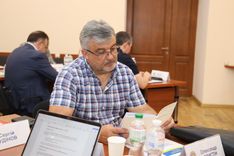
ANALYTICS AS A FORCE FOR CHANGE — BETWEEN ACHIEVEMENT AND THE UNSPOKEN
Despite the tense night in Kyiv and overwhelming informational pressure, we stand in formation. Eight years of law enforcement analytics in the National Police of Ukraine — much has been accomplished, yet much more lies ahead.
Still, professional analytics in law enforcement is not simply about data processing. It must become a core element of strategic, risk-oriented management and interagency thinking. And in these areas, we continue to lack necessary depth.
Analytical thinking is not an add-on to operations — it is the foundation of sound decision-making. Without strong strategies, institutional maturity, and interagency synergy, we risk losing more than just data. We lose efficiency and public trust.
These eight years represent enormous effort. But real progress is only possible when analytics evolves into an institutionally mature, structurally supported, and strategically integrated domain.

THE ASSOCIATION ORGANIZED A ROUND TABLE "IMPLEMENTATION OF THE ILP MODEL IN UKRAINE"
On March 15, members of the association actively participated in the round table on the topic: "IMPLEMENTATION OF THE ILP MODEL IN UKRAINE."
During the first panel discussion, participants discussed the ILP intelligence-led policing model: philosophy, foreign experience, and prospects for implementation in Ukraine.
Professor Oleksandr KORYSTIN The following presented their reports: Acting Head of the Criminal Analysis Department of the National Police of Ukraine, Police Lieutenant Colonel Roman Butko; Senior Advisor on Criminal Investigations of EUAM Christian Lippmann; Expert on Specialized Law Enforcement Agencies of EUAM Bohdan Denysenko and others.
The second part of the event was dedicated to the implementation of SOCTA (Serious and Organised Crime Threat Assessment) in Ukraine - Europol's methodology and a modern approach to combating organised crime.
A substantive report was presented by the Chairman of the Association, Doctor of Law, Professor, Honoured Worker of Science and Technology of Ukraine Oleksandr KORYSTIN.
The Head of the Project and Risk Management Department of the Organizational Work Department of the Information and Analytical Support Department of the National Police of Ukraine, Police Lieutenant Colonel Yevhen Razenkov, revealed the issue of forming integrated databases of combatants of the armed forces of the Russian Federation and persons prone to collaboration in the temporarily occupied territories of Ukraine.
The roundtable was attended by scientists, teachers, adjunct professors, postgraduate students, masters, higher education students of departmental higher education institutions, and practical workers of law enforcement agencies of the state.
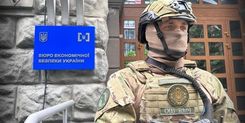
"BEB" IN THE ECONOMIC SECURITY SYSTEM OF UKRAINE
The establishment of a new law enforcement agency — the Bureau of Economic Security (BEB) — is attracting increasing attention in society and not only among experts. Objectively formed conditions required the renewal of this direction: on the one hand, business demanded a reduction in administrative and corruption pressure and assessed its risk at 57%, and on the other, the state needed to create an effective mechanism for protecting economic interests (the risk level of targeted organized crime activity in certain areas of economic activity ranged from 60% to 71%).
Along with this, Russian aggression has made its own adjustments to this process. Back in 2019, when studying hybrid threats, emphasis was placed on the high level of risk (45%) of the emergence of new criminal schemes in the economic sphere as an element of encroachment on the economic integrity of Ukraine. During the war, news in the media increasingly draws attention to numerous offenses related to humanitarian aid. At the same time, predicting threats during the period of Ukraine's recovery, it is already necessary to assess the risks associated with the use of international financial assistance against the background of systemic criminal phenomena: organized economic crime, embezzlement of state funds, money laundering, corruption, etc.
And the situation is extremely striking. Assessing the risks of organized criminal activity in our country's economy in 2021:
— 15% of criminal organizations operate on a transnational level;
— almost 9% of criminal organizations have existed for more than 15 years;
— 33% of criminal organizations have significant experience in criminal economic activity;
— almost 20% of criminal organizations are characterized by connections with “thieves in law”;
— 12% of criminal organizations operate with financial resources exceeding UAH 250 million per month;
— in 9% of criminal organizations, the annual amount of funds received as a result of illegal activities exceeds UAH 500 million;
— 58% of criminal organizations have a good understanding of the methods of law enforcement agencies and use countermeasures;
— 63% of criminal organizations systematically use corrupt connections, and in 19% of cases these are connections in law enforcement agencies;
— in 38% of the criminal activity has increased, –
the conclusion is one – the presence of a formed, “professional”, organized economic criminal infrastructure.
Which institution is able to minimize the destructive impact of systemic criminal phenomena on the country’s economy? Does the BEB have the appropriate capabilities?
For more than one year, the Ukrainian professional community has been fighting for the creation of a new law enforcement agency, limiting pressure on business, placing great hopes on the formation of capabilities for effective protection of the economic interests of the entire society. And they got what, in a very short period of time, is called in society, not without irony, “BEB”!
Most experts who monitor the processes of the formation of BEB, analyzing the results of the newly created agency, place the main emphasis on statistical data related to the criminal and legal activity of BEB. But they do not take into account what has long been noted not only by domestic experts, but also by foreign ones: state statistics, in particular the ERDR, do not reflect the real state of economic crime in the country.
Criminal liability is only one of the instruments of social security and ensures the inevitability of punishment for committed crimes, but, taking into account the high corruption risks in our society and so on, the probability of this is extremely low, and therefore we do not resort to the analysis of real court verdicts for economic crimes in past periods, which are characterized by insignificance against the background of those systemic criminal manifestations that require an urgent and adequate response from the state.
That is why for almost a decade in Ukraine, the implementation of a modern philosophy of law enforcement and a management model based on analytical intelligence has been considered a priority. And certain achievements have taken place, since a number of norms of the Law of Ukraine “On BEB” implement exactly this approach. The key areas provided for are the development of information and analytical activities, proactivity in the BEB activities, ensuring, first of all, the prevention of crime in the system of economic security of the state.
The system-forming component of the implementation of key areas is a risk-oriented approach in the activities of the Bureau of Economic Security and the implementation of risk management based on their assessment.
In accordance with clause 5, article 12 of the Law "On the Bureau of Economic Security", the procedure for applying a risk-oriented approach is approved by the order of the Bureau of Economic Security, and in accordance with clause 5, article 13, the procedure for conducting a set of measures to assess risks in the economic sphere is approved by the Cabinet of Ministers of Ukraine.
To date, the specified documents have not been developed and approved, which is the absence of appropriate legal regulation, in fact, of the key area of activity of the Bureau of Economic Security already in the second year of official activity of the state body.
Formally, this is a failure to comply with a direct provision of the Law. In accordance with clause 3, article 12, "The risk-oriented approach must be proportional to the nature and scale of the activities of the Bureau of Economic Security of Ukraine in the relevant field."
In essence, the Law directly indicates that the BEB must determine its work (directions, economic sectors, criminal prosecution, seizure of assets, etc.) on the basis of a previously conducted risk assessment in the field of economic security of Ukraine. That is, the subject of activity of BEB employees (according to the Law) is determined by the level of risk according to criteria that are “related to the nature and type of illegal action, industry-specific features of systemic criminal phenomena, financial losses of the state from optimizing tax payments, etc.” (clause 2 of Article 12).
That is, on the basis of risk assessment (and only in this way), with the physical presence of the appropriate analytical product, a BEB work plan should be developed for at least a year, and preferably for the period of martial law (because the threats are of a different nature), which indicates the implementation of the direct norm of the Law and is a justification for the estimate of expenditure of state funds on BEB activities.
It is clear that in the current situation, this problem will not be in the spotlight, but the management of the BEB should anticipate that very soon the issue of the targeted use of budget funds may be raised by the Accounting Chamber of Ukraine!
An important component of development is the level of competence of the BEB management. In a number of speeches in the media, the Director of the BEB stated that the BEB is an “analytical body with law enforcement functions”. Something new! How is this? Exceptional incompetence!
A “law enforcement body” does not require a formal legal definition (the legislator uses various legal constructs, in particular the Central Executive Committee), it is only necessary to pay attention to the powers (tasks) (Article 8 of the Law on the BEB) – the “pre-trial investigation” of certain types of crimes already emphasizes law enforcement activities. At the same time, analytics is an auxiliary tool in the investigation of crimes (Article 9 of the Law on the BEB).
Incompetence also lies in the fact that the new law enforcement agency has nothing to do with new approaches to activity. In fact, this is a daily pursuit of what has long been done. The question is: what is the effectiveness of three hundred BEB employees within Ukraine, or at least the city of Kyiv (last year in Kyiv there were at least 110 criminal organizations in the economy on a systemic criminal basis)?
The competencies of the new approaches involve proactivity in BEB activities: knowledge of the criminal environment in the economy, determination of the highest priority areas of activity, understanding the vulnerabilities of the system and maximum impact on the criminal infrastructure and its destructive impact on the economy, while optimizing costs. This is a modern approach that BEB management is unable to even understand today!
The absence of such competencies excludes any effectiveness even with a staff of 4 thousand employees, as provided for by the Law.
The situation with the appointment of BEB employees does not require analysis at all. One has only to recall the minutes of the meeting of the RGC No. 7 of 07/18/22 and the disagreement with the appointment of "... an odious person with a dubious reputation ..." to a leading position in the BEB. Against this background, it is extremely regrettable to recall the discussion in the VRU committees on the principle of personnel selection in the BEB, the results of which were reduced to zero. One word - BEBics!
Thus, imitation of personnel selection, imitation of competencies, imitation of activities ... is such a state of affairs permissible in the BEB? To answer this question, everyone who has read the above analysis should answer one question! Can we imagine any imitation in the defense of the country in the current conditions of Putin's aggression? Otherwise, corruption and organized crime in the economy will not be overcome!
«ESB» IN THE ECONOMIC SECURITY SYSTEM OF UKRAINE
The formation of a new law enforcement agency — the Economic Security Bureau (ESB) — is attracting more and more attention in society and not only experts. Objectively formed conditions required the renewal of this direction: on the one hand, business demanded a reduction in administrative and corruption pressure and assessed its risk at the level of 57%, and on the other hand, the state needed to create an effective mechanism for the protection of economic interests (the level of risk of purposeful activity of organized crime according to in certain areas of economic activity reached from 60% to 71%).
Along with this, the Russian aggression made adjustments to this process as well. Back in 2019, when investigating hybrid threats, emphasis was placed on the high level of risk (45%) of the emergence of new criminal schemes in the economic sphere, as an element of encroachment on the economic integrity of Ukraine. During the war, more and more often, news in the media draws attention to numerous crimes related to humanitarian aid. At the same time, predicting threats during the recovery period of Ukraine, it is already necessary to assess the risks associated with the use of international financial aid against the background of systemic criminal phenomena: organized economic crime, appropriation of state funds, money laundering, corruption, etc.
And the situation is extremely impressive. Assessing the risks of organized criminal activity in the economy of our country in 2021:
— 15% of organized armed groups conduct their activities at the transnational level;
— almost 9% of organized armed groups have existed for more than 15 years;
— 33% of organized armed groups have significant experience in criminal economic activity;
— almost 20% of organized armed groups are characterized by connections with «thieves in law»;
— 12% of organized armed groups operate monthly with financial resources of more than UAH 250 million;
— in 9% of organized armed groups, the annual amount of funds received as a result of illegal activity exceeds UAH 500 million;
— 58% of the organized armed groups have a good understanding of the methods of law enforcement and use countermeasures;
— 63% of organized armed groups systemically use corruption connections, and in 19% of cases these are connections in law enforcement bodies;
— in 38% of organized armed groups, the scale of criminal activity increased, —
one conclusion — the presence of a formed, «professional», organized economic criminal infrastructure.
Which institution is capable of minimizing the destructive impact of systemic criminal phenomena in the country’s economy? Does the BES have the appropriate capabilities?
For more than one year, the Ukrainian professional community has campaigned for the creation of a new law enforcement agency, limiting pressure on business, placing high hopes on the formation of capabilities to effectively protect the economic interests of the entire society. And we got what is called in a very short period of time in the society not without irony — «BES»!
Most of the experts who monitor the processes of formation of the BES, analyzing the results of the activities of the newly created body, put the main emphasis on statistical data related to the criminal and legal activity of the BES. But they do not take into account what has long been noted not only by domestic experts, but also by foreign ones: state statistics, in particular the Single Register of Pre-trial Investigation, do not reflect the real state of economic crime in the country.
Criminal responsibility is only one of the tools of social security and ensures the inevitability of punishment for committed crimes, but given the high corruption risks in our society and others, the probability of this is extremely low, and therefore we do not resort to the analysis of real court sentences for economic crimes in the past periods that are characterized by insignificance against the background of those systemic criminal manifestations that require an urgent and adequate response from the state.
That is why for almost a decade in Ukraine, the implementation of a modern philosophy of law enforcement activity and a management model based on analytical intelligence has been considered a priority. And certain achievements are taking place, as a number of norms of the Law of Ukraine «On ESB» implement exactly the specified approach. The key directions include the development of information and analytical activities, proactivity in the activities of the Security Intelligence Service, ensuring, first of all, the prevention of crime in the system of economic security of the state.
A system-forming component of the implementation of key areas is a risk-oriented approach in the activities of the ESB and the introduction of risk management based on their assessment.
According to Clause 5, Article 12 of the Law «About ESB», the procedure for applying a risk-oriented approach is approved by the order of the ESB, and Clause 5, Article 13, the procedure for carrying out a set of measures to assess risks in the economic sphere is approved by the Cabinet of Ministers of Ukraine.
Until now, the specified documents have not been developed and approved, and this is the lack of appropriate legal regulation, in fact, the key direction of the ESB’s activity already in the second year of official activity of the state body.
Formally, this is non-fulfillment of a direct provision of the Law. According to clause 3 of Article 12, «The risk-oriented approach must be proportional to the nature and scope of the activity of the Bureau of Economic Security of Ukraine in the relevant field.»
In essence, the Law directly indicates that the ESB should determine its work (in particular, economic spheres, criminal prosecution, seizure of assets, etc.) on the basis of a previously conducted assessment of risks in the sphere of economic security of Ukraine. That is, the subject of activity of ESB employees (according to the Law) is determined by the level of risk according to criteria «related to the nature and type of illegal action, branch specifics of systemic criminal phenomena, financial losses of the state from optimization of tax payment, etc.» (clause 2 of article 12).
That is, on the basis of risk assessment (and only on this basis), with the physical availability of the corresponding analytical product, a work plan of the ESB must be developed for at least a year, and preferably for the period of martial law (because of threats of a different nature), which indicates the implementation of the direct provision of the Law and is the justification for the estimate of the expenditure of state funds on the activities of the ESB.
It is clear that under the current state of affairs, the mentioned problem will not be in the center of attention, but the management of ESB should anticipate that the Accounting Chamber of Ukraine may very soon ask questions about the targeted use of budget funds!
An important component of development is the level of competence of BES management. In a number of media appearances, the Director of the ESB stated that the BES is an «analytical body with law enforcement functions.» Something new! How is it? Exceptional incompetence!
«Law enforcement body» does not need a formal legal definition (the legislator uses various legal constructions, in particular the Central Body of Executive Authority), it is only necessary to pay attention to the powers (tasks) (Article 8 of the Law on ESB) — the «pretrial investigation» of certain types of crimes already emphasizes law enforcement activity At the same time, analytics is an auxiliary tool in the investigation of crimes (Article 9 of the Law on ESB).
Incompetence also occurs in the fact that the new law enforcement body has nothing to do with new approaches to activity. In fact, it is a daily pursuit of what happened a long time ago. Question: what is the efficiency of three hundred ESB employees within Ukraine, or at least the city of Kyiv (as recently as last year in Kyiv there were at least 110 organized armed group in the economy on a systemic criminal basis)?
Competencies of the new approaches involve proactivity in the activities of the ESB: knowledge of the criminal environment in the economy, determination of the first priority areas of activity, understanding of system vulnerabilities and maximum impact on the criminal infrastructure and its destructive impact on the economy, while optimizing costs. This is a modern approach that the ESB management is unable to even understand today!
The lack of such competences excludes any efficiency even with a staff of 4,000 employees provided for by the Law.
The situation with the appointment of ESB employees does not require analysis at all. It is only necessary to recall the minutes of the RGK meeting No. 7 dated 18.07.22 and the disagreement with the appointment of «… an odious person with a dubious reputation…» to a leadership position in ESB. Against this background, it is extremely regrettable to recall the discussion in the committees of the Verkhovna Rada on the principles of personnel selection in the ESB, the results of which were reduced to zero. One word — BESes! Thus, simulation of personnel selection, simulation of competences, simulation of activity… is such a situation acceptable in the ESB? To answer this question, everyone who has read the above analysis should answer one question! Can we imagine any imitation in the defense of the country in the current conditions of Putin’s aggression? Otherwise, corruption and organized crime in the economy cannot be overcome!

NEW EDITION ON OPERATIONAL AND SEARCH ACTIVITIES
Ukraine's active integration into the world economic system, the signing of an association with the European Union, and the establishment of international relations in various sectors create favorable conditions for the development of the tourism industry in Ukraine. Tourism is one of the actively developing sectors of the Ukrainian economy. The priority direction of the development of inbound and domestic tourism is an important factor in improving the quality of life in Ukraine, creating additional jobs, replenishing the state's foreign exchange reserves, and increasing its authority at the international level. At the same time, the current conditions for the development of our society, the aggravation of socio-political relations, instability, and material stratification of the population are accompanied by negative changes in the dynamics and specific structure of crime. Steady growth trends are also characteristic of crimes against tourists' property.
The unsatisfactory state of counteraction to these crimes is explained by the fact that the National Police make mistakes in analyzing available information, planning operational and search measures and investigative actions, putting forward versions, organizing interaction, etc. To a large extent, these shortcomings are also due to the lack of modern effective methodological, scientifically based recommendations taking into account the peculiarities of the operational-detective characteristics of crimes against tourists' property and the specifics of the situations that arise. In order to solve these problems, members of the Association - scientists from the Odessa State University of Internal Affairs and the Dnipropetrovsk State University of Internal Affairs have prepared a new publication:
Operational-detective counteraction to crimes against tourists' property in Ukraine: monograph / S.V. Albul, V.V. Abroskin, M.O. Voloshyna, K.M. Manoilenko; General editor. S.V. Albula. Odesa: ODUVS, 2021. 200 p. (Series: Theory and Practice of ORD).
When working on the monograph, the authors set the following goals: to establish the state of scientific development of the issue of operational-detective counteraction to crimes against tourists' property; to develop proposals for improving the legal regulation of operational and investigative counteraction to crimes against tourists' property; to identify the features of the operational and investigative characteristics of crimes against tourists' property in Ukraine; to substantiate ways to optimize the information and analytical support of operational and investigative counteraction to crimes against tourists' property; to formulate proposals for areas of improvement of internal and external interaction of criminal police units in countering crimes against tourists' property in Ukraine; to outline areas of improvement of tactics of conducting operational and investigative measures and covert investigative (investigative) actions to counter crimes against tourists' property in Ukraine, etc.
The monograph was prepared in accordance with the Topics of Scientific Research and Scientific and Technical (Experimental) Developments for 2020-2024, approved by the Order of the Ministry of Internal Affairs of Ukraine dated June 11, 2020 No. 454 (paragraphs 10; 13), the topic of scientific research and development work of the Odessa State University of Internal Affairs “Priority Areas of Development and Reform of Law Enforcement Agencies in the Conditions of the Deployment of Democratic Processes in the State” and the scientific topic of the Department of Operational and Investigative Activities of the Faculty of Training of Specialists for Criminal Police Units of the Odessa State University of Internal Affairs “Legal and Organizational and Tactical Principles of Operational and Investigative Activities of the National Police of Ukraine” (state registration number: 0121U109270).
The monograph will be useful for employees of practical units of the National Police of Ukraine, higher education students, and teachers of higher education institutions of the Ministry of Internal Affairs of Ukraine that train police officers.

DISCUSSION OF THE EDUCATIONAL COMPONENT MODEL OF ANALYTICS-DRIVEN LAW ENFORCEMENT ACTIVITIES
Modern education requires constant discussion and implementation of best national and global practices. That is why today the university discussed at the international level the standardization of the educational approach to criminal analysis and the model of law enforcement activities guided by analytics (ILP).
Representatives of the European Union Advisory Mission actively participated in the meeting, namely: Senior Advisor on Organized Crime Investigation Palo Mart, Leading Expert on Organized Crime Investigation Bohdan Denysenko, Doctor of Law, Professor, Honored Worker of Science and Technology of Ukraine Oleksandr Korystin, representatives of all departmental higher education institutions of the Ministry of Internal Affairs of Ukraine that train police officers, as well as master's degree students of the educational and professional program "Criminal Analysis" of the Odessa State University of Internal Affairs.
During the discussion, Bohdan Denysenko noted areas for improving the standardization of the educational process and identifying needs and opportunities, in particular regarding potential assistance from EUAM, such as the organization of online trainings.
Oleksandr Korystin drew attention to the problems of a bureaucratic nature and reminded those present of the experience of implementing criminal analysis in Romania, Poland and the Czech Republic, and also focused on the use of a single methodology.
Karen Ismaylov familiarized those present with the experience of the Odessa State University of Internal Affairs in teaching academic disciplines in the specialization "Criminal Analysis", the structure and logical scheme of the educational program and offered to provide their suggestions for the curriculum.
Oleksandr Zayets emphasized closer interaction with employees of the Department of Criminal Analysis of the National Police of Ukraine and providing students with a wider list of academic disciplines to choose from.
At the end of the lively discussion, everyone agreed to continue the discussion at the next meetings.
MEMBERS OF THE ASSOCIATION JOINED THE DISCUSSION OF THE DRAFT LAW OF UKRAINE "ON OPERATIONAL AND SEARCH ACTIVITIES"
On March 9, 2021, the head of the Association of Scientists and Specialists in the Field of Operational and Investigative Activities, Doctor of Laws, Professor Oleksandr Korystin, and a member of the board of the association, Candidate of Laws, Associate Professor Vyacheslav Nekrasov, took an active part in the meeting of the interdepartmental scientific and practical round table to discuss the prospects for improving legislation in the field of the functioning of operational units.
Oleksandr Korystin raised the issue of the place of operational and investigative activities in the system of law enforcement and in the criminal justice system, the impact of operational and investigative activities on fundamental human rights and freedoms, and the effective use of this activity by developing mechanisms for preventing crime and the commission of certain crimes. Also, Professor Oleksandr Korystin, during his speech, paid attention to the distinction between the concepts of operational and investigative activities and criminal intelligence.
Vyacheslav Nekrasov drew attention to the fact that it is now necessary to form a practically new paradigm of operational and investigative activities, as well as to the tasks that we set for the mentioned institution. As an example, he raised the question of deciding the form of operational and investigative activities: it should be a form of secret, covert investigation or a system of mechanisms for controlling crime.
Also speaking at the round table were representatives of the Office of the President of Ukraine, the Verkhovna Rada of Ukraine Committee on Law Enforcement, the Public Council under the Ministry of Internal Affairs of Ukraine, and the Main Investigation Department of the National Police of Ukraine, who outlined priority areas for improving the legislative support for the activities of operational units in modern conditions.
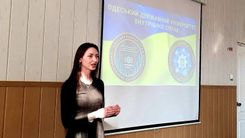
Odessa State University of Internal Affairs conducts binary classes with the invitation of practical employees within the framework of the academic disciplines "Criminal Analysis" and "Information Support of Professional Activities"
The Department of Cybersecurity and Information Support held a binary session with the 2nd year cadets of the Faculty of Training of Specialists for Criminal Police Units with the Senior Inspector for Special Assignments of the Analytical Work Department of the Criminal Analysis Department of the Main Police Department of the Odessa Region, Police Captain Olena Postol, within the framework of the academic disciplines "Criminal Analysis" and "Information Support of Professional Activities."
During the meeting, second-year cadets of the faculty of training specialists for criminal police units got acquainted with practical methods of analyzing large data sets. By examining real facts of crimes, they determined which information systems and subsystems analytical and operational units work with.
The cadets actively participated in the discussion, lively debated the considered examples from practice. With the help of developed situations, the speaker focused the cadets' attention on detailing the life activities of suspects in order to establish their involvement in committing criminal offenses.
During the meeting, Olena Postol emphasized that analytical work in the units of the National Police is carried out by units of all levels, their branch services, and employees of these services within their competence. The requirements for organizing analytical work for each level of the system are different due to the different tasks of these bodies and their different capabilities. At the end of the meeting, the concept of further development of criminal analysis in the National Police of Ukraine was discussed and wishes were expressed for fruitful cooperation between the university and practical units of the Main Police Department in the Odessa region.

FUTURE OPERATORS ARE TRAINED HERE
Odesa has always been famous for its detectives. Among them: Vitaly von Lange (it was he who stopped the criminal path of the famous Sonya "Golden Pen"), David Kurlyand (the prototype of David Gotsman), Oleksandr Kozachinsky (the author and prototype of the main character of the book "The Green Van"), Osyp Shor (the prototype of Ostap Bender and the personal enemy of Mykhailo Vinnytsky "The Japanese"), Yevhen Petrov (one of the co-authors of the novels "12 Chairs" and "The Golden Calf"), etc.
The work of the operative units of the National Police has always aroused and arouses interest. After all, it is directly related to the detection, suppression and resolution of crimes. At the same time, this work is not only romantic, but also very responsible and requires its representatives to have significant knowledge and skills.
In the South of our country, the forge of personnel for the operational units of the National Police of Ukraine is the Faculty of Training Specialists for Criminal Police Units and its leading unit - the Department of Operational and Investigative Activities.
In training future operatives, the scientific and pedagogical staff of the Department of Operational and Investigative Activities combines theoretical and practical elements of training, because the acquisition of practical skills of operational and investigative activities by cadets is the key to the professional training of future police officers.
Recently, in the methodology of teaching specialized academic disciplines, including "Operational and Investigative Activities", along with traditional methods, there has been an interest in new educational models, technologies and methods that involve the transition from the mechanical accumulation of knowledge to a more pragmatic approach to the real activities of a specialist in a certain field. One of the teaching methods that contributes to the development and acquisition of skills and practical skills is the organization and conduct of quests.
Training platoons are divided into small groups, which are offered real plots of criminal offenses. Under the given circumstances and conditions, the cadets put forward versions in order to solve crimes, outline the optimal list of priority operational and investigative measures at the scene. From among the participants of each group, a conditional “head of the operational unit”, “investigator”, “employees of the operational unit” were determined.
During the lesson, cadets in small groups on a conditional territory solved specific practical tasks related to obtaining information, establishing the location of conditionally stolen items, establishing contact with various individuals, identifying individuals by signs, using technical means, etc. In accordance with the line of conduct chosen by the cadets, the teacher provides additional clarifying conditions that “arise” during the conduct of priority measures. At the final stage of the lesson, group participants must draw up certain official documents.
A variety of quests from the academic discipline “Operational and investigative activities” are literary and historical quests. An example of this is the following:
The police department received two reports of the commission of criminal offenses. Cadets from the faculty of training specialists for criminal police units are involved in the case.
According to the first plot, a citizen discovered the theft of furniture (chairs) in her own home. According to available information, the organizer of the hypothetical "crime" lived in the area specified by the instructor. The cadets were tasked with using theoretical knowledge to determine the "location" of this person.
According to another plot, passers-by noticed that unknown persons had kidnapped a child and were holding him in an unknown place. During the implementation of primary measures, the approximate area and signs of the child were established. The task is to establish the location of the child.
During the lesson, the cadets, in small groups, solved these practical tasks on a conditional territory. According to the first plot (theft of chairs), the place of residence of the “organizer” was established - one of the authors of the famous work “12 Chairs” Yevgeny Petrov (Katayev), who previously lived on Bazarna Street. According to the second plot, the location of the “child” was established - the ancient sculpture “Boy with a Mermaid”, which is located deep in one of the courtyards on Marazliyivska Street.
It should be noted that thanks to educational quests, cadets will be able to more fully master professional knowledge in operational and investigative activities, develop relevant professional and personal qualities, form the ability to independently make decisions in conditions of uncertainty, identify a problem, develop a multi-variant action plan to resolve a certain situation, develop teamwork skills, etc.
